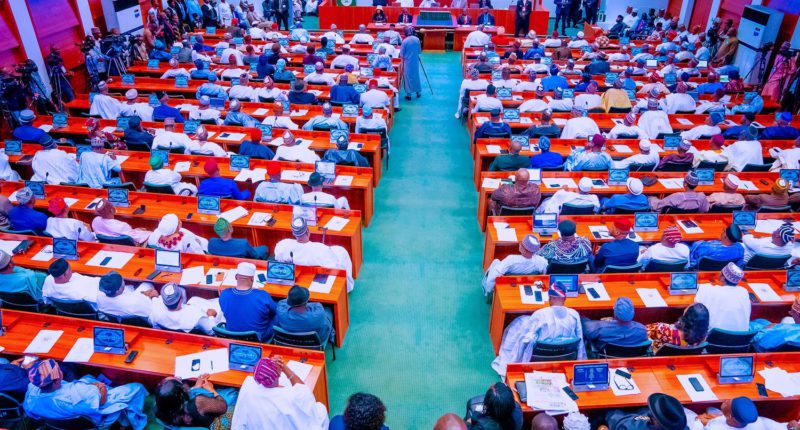President Muhammadu Buhari submitted the 2023 Appropriation Bill, dubbed the ‘Budget of Fiscal Sustainability and Transition,’ to the National Assembly on Friday, October 7, 2022.
Breakdown
The planned total expenditure of N20.51 trillion, which includes N2.42 trillion spent by Government-Owned Enterprises (GOEs), is a record budget, surpassing the N19.76 trillion approved in the National Assembly’s 2023-2025 Medium Term Expenditure Framework and Fiscal Strategy Paper (MTEF/FSP).
Statutory Transfer of N744.11 billion; Non-Debt Recurrent Costs of N8.27 trillion; Personnel Costs of N4.99 trillion, Pensions, Gratuities, and Retiree Benefits of N854.8 billion; Overheads of N1.11 trillion; Capital Expenditure of N5.35 trillion, including the capital component of Statutory Transfers; Debt Service of N6.31 trillion; and Sinking Fund of N247.73 billion to pay down certain maturing bonds
Income.
The budget is based on assumptions that oil prices will rest at $70 per barrel, a daily oil production estimate of 1.69 million barrels (inclusive of condensates of 300,000 to 400,000 barrels per day), an N435.57/$ exchange rate, and a projected GDP growth rate of 3.75% and a 17.16% inflation rate.
Oil revenue is expected to be N1.92 trillion, non-oil taxes to be N2.42 trillion, and FGN independent revenue to be N2.2 trillion. Other revenues are N762 billion, while retained revenues total N762 billion.
Based on these fiscal assumptions and parameters, total federally collectible revenue is estimated to be N16.87 trillion, total federally distributable revenue is estimated to be N11.09 trillion, and total revenue available to fund the 2023 Federal Budget is estimated to be N9.73 trillion, which includes revenue from 63 Government-Owned Enterprises.
Debts.
Capital expenditure, excluding the capital component of statutory transfer, amounts to only N3.86tn, or 19% of the planned budget. This is minimal when compared to non-debt recurring expenses and employee expenditures. This has been the trend for many years.
Debt service provision in the appropriation bill amounts to 32% of overall expenditure and 67.31% of total receipts. It significantly exceeds the N3.61 trillion in 2021, or 21% of total expenditure and 34% of total receipts.
This results in a deficit of N10.78tn, which is greater than the deficit of roughly N8tn last year. Borrowing will be used to finance the deficit: External borrowings of N8.8 trillion ($20.3 billion) and bilateral/multilateral borrowings totaling N1.77 trillion are also cause for concern, as is the country’s enormous public debt, which stood at N42.845 trillion ($103.312 billion) as of June 2022, according to DMO data.

